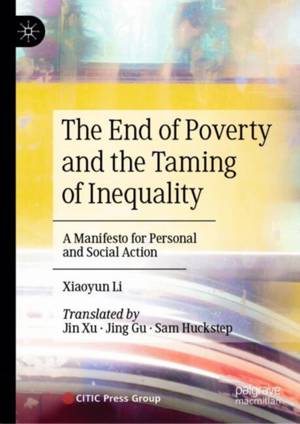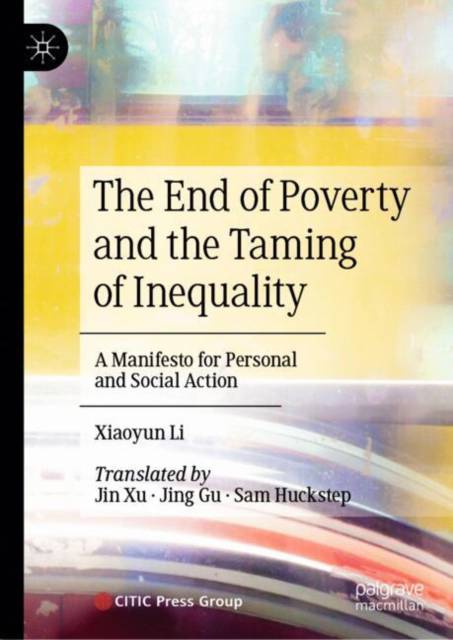
- Afhalen na 1 uur in een winkel met voorraad
- Gratis thuislevering in België vanaf € 30
- Ruim aanbod met 7 miljoen producten
- Afhalen na 1 uur in een winkel met voorraad
- Gratis thuislevering in België vanaf € 30
- Ruim aanbod met 7 miljoen producten
Zoeken
The End of Poverty and the Taming of Inequality
A Manifesto for Personal and Social Action
Xiaoyun Li
Hardcover | Engels
€ 198,45
+ 396 punten
Omschrijving
In this book, Li Xiaoyun tries to address these questions that attract public attention in today's China. Drawing on classic and cutting-edge poverty research from political economy, economics and social psychology, Li elaborates on the political and social meanings of China's recent war on extreme poverty and the institutional set-ups that helped the country successfully escape the poverty trap. Adopting a quasi auto-ethnography of his poverty experiment in a poor ethnic village in China, Li presents an excruciating adventure of how the country and its people fought against poverty from a bottom-up perspective which brings this book alive. A collection of essays and opinion pieces, this book is an "espresso" of Li's insights and inquiries on China's chronical and transitional poverty which may interest not only a small circle of poverty researchers, policy-makers, practitioners, but also a wider spectrum of readers who want to understand a real China in development.
Specificaties
Betrokkenen
- Auteur(s):
- Vertaler(s):
- Uitgeverij:
Inhoud
- Aantal bladzijden:
- 254
- Taal:
- Engels
Eigenschappen
- Productcode (EAN):
- 9789819606832
- Verschijningsdatum:
- 1/02/2025
- Uitvoering:
- Hardcover
- Formaat:
- Genaaid
- Afmetingen:
- 148 mm x 210 mm
- Gewicht:
- 480 g

Alleen bij Standaard Boekhandel
+ 396 punten op je klantenkaart van Standaard Boekhandel
Beoordelingen
We publiceren alleen reviews die voldoen aan de voorwaarden voor reviews. Bekijk onze voorwaarden voor reviews.











